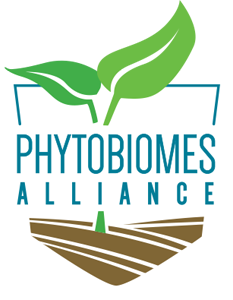
Linda Kinkel

Role in Phytobiomes Alliance
Agricultural Microbiome Research Coordination Network (RCN), Coordinating Committee
Affiliation
University of Minnesota
Position
Professor
Research Interests
- Ecology and evolutionary biology of plant-associated microbes, especially soil and endophytic populations
- Microbiome management to suppress plant diseases and promote plant growth
- Microbial interactions and microbiome functional characteristics
Current Phytobiomes-related Projects
- The Agricultural Microbiomes Research Coordination Network: developing an international network of microbiome research and researchers through a series of workshops.
- Within-host microbial communities; experimentally scaling interaction dynamics across sites, regions, and continents. Study of endophytic microbiome composition and the effects of NPK additions, plant host, and microbial species interactions in determining composition and functional capacities of foliar endophytic microbiomes.
- Biodiversity, multiple drivers of environmental change, and ecosystem functioning at the prairie-forest border. Studies of the effects of enemy removal (long-term foliar or soil fungicides or foliar insecticides), environmental warming, plant diversity, plant `host’, and nutrient amendments on phytobiome community composition and function.
- Optimizing soil management to enhance potato crop yields and soil health in fumigated and non-fumigated soils. Studies of the interactive effects of soil fumigation, nutrient amendments, and microbial inoculants on soil and endophytic microbiomes, diseases, and yield in potato production systems.
- Streptomyces whole-genome sequencing project: biogeographic, ecological, and coevolutionary covariates of Streptomyces genomes. Studies of landscape-scale effects on soil Streptomyces populations, specifically focusing on their capacities to suppress plant pathogens within the phytobiome.
- Streptomyces metatranscriptomics project: community size and compositional effects on the secondary metabolic transcriptome among sympatric Streptomyces. Studies characterizing the effects of community composition on pathogen suppressive potential among coevolved Streptomyces populations as a platform for optimizing phytobiome management.
- Mechanisms of co-evolutionary adaptation of soil microbes. Whole genome sequencing, metatranscriptomic, and metabolomics analyses of pairs of coevolved bacterial and fungal species from the plant rhizosphere targeted towards enhancing understanding of the factors that mediate ecological and evolutionary effects of microbial interactions on pathogen suppression potential in the phytobiome.
- Developing Predictive Understanding Of Management Effects On Microbiome Composition, Microbial Interactions, And Pathogen Suppression In Soil. Studies of the effects of long-term monoculture, soil nutrient amendments, and residue incorporation on soil microbiome composition and functional characteristics across five crop species.
